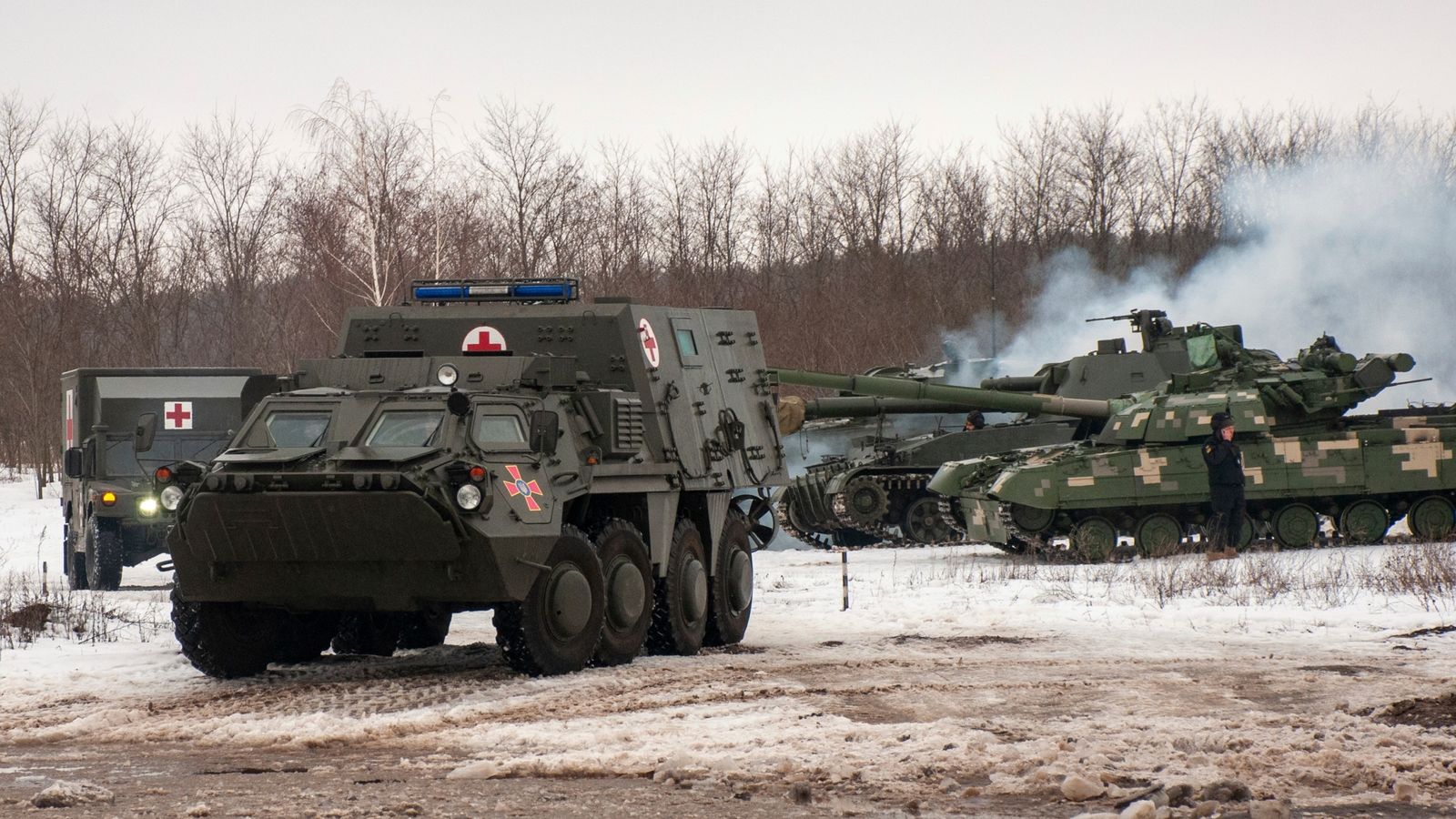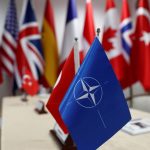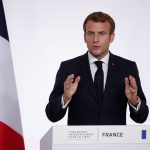For those in the UK, western Europe and the United States who take comfort in the fact that an escalating crisis with Russia over Ukraine is blissfully far away – think again.
Any move by Russian President Vladimir Putin to bomb Kyiv into submission and seize control of the country by force – as could happen this week – would not only be a disaster for Ukraine, it would be a direct challenge to a global order that has enabled liberal democracies to thrive at the expense of authoritarian regimes since the end of the Second World War.
It means the balance of global power dominated by a US-led vision of rules and values for the past 70 years would shift and – like it or not – that matters for everyone, from the cosy corners of middle class England to the broken pieces of a newly shattered Ukraine.
Please use Chrome browser for a more accessible video player
The notion that a European nation in the 21st century could well be seized by its more powerful neighbour in a war of choice is hard to conceive.
That is especially true for the majority of people in the West who have largely only known peace and stability in their respective countries all their lives – and whose understanding of war is from books, films and talking to aged parents or grandparents.
But this complacency about the durability and predictability of European security, especially since the end of the Cold War, is exactly why a rival power such as Moscow has been able to mobilise so effectively to create the conditions for a reset on Russian terms.
That all points to a very real prospect of President Putin launching a large-scale invasion of Ukraine in defiance of months of increasingly dire warnings by the US, the European Union and other allies, including the UK, to refrain or face the consequences.
Kamila Valieva: World Anti-Doping Agency to investigate 15-year-old Russian skater’s Olympic entourage
Ukraine crisis: Imminent incursion by Russia ‘entirely possible’ – as defence sec says complacency from some has ‘whiff of Munich’
Ukraine crisis: ‘Whiff of Munich in the air’ – UK fears Russian invasion is ‘highly likely’ despite talks to avert war
The Russian leader may have calculated that the pain of sanctions and becoming a pariah in the eyes of western countries is worth the gain of delivering a major blow to a trend in recent years of former Soviet states joining the trans-Atlantic NATO defence alliance, becoming members of the European Union and embracing liberal democratic values.
That trend is seen from the Kremlin’s viewpoint as a direct threat to its survival should enough people inside Russia demand the same kind of change.
Doubtless adding to President Putin’s resolve is the silence so far from China, the world’s emerging superpower, about the threat of a new Russian invasion of Ukraine.
It could indicate a tacit endorsement of Russia’s challenge to western warnings.
President Xi Jinping will doubtless have an eye on what his next move might be over Taiwan depending upon how President Putin fares with Ukraine.
US President Joe Biden, on a visit to the UK for a meeting of G7 powers last June, warned that the world was standing at an “inflection point in history” and called on democratic powers to unite against the rise of authoritarian regimes led by China and Russia.
But there has been slim evidence of any such unity since then, other than a unified and chaotic retreat from the US-led war in Afghanistan.
Underpinning everything is the reality that western governments have for decades only paid lip service to defending what is called the international rules-based order – a liberal structure of rules that have shaped the world since 1945 – instead of truly prioritising it.
Please use Chrome browser for a more accessible video player
They focused on economic growth, health and education at home, while their ability to use lethal military power credibly to deter threats to their own people waned.
Political leaders, with only short-term targets because of the need to win votes in the next election cycle, have been warned since the end of the Cold War about the risk of shrinking their militaries.
But because an existential threat was not imminent, investment went elsewhere at the expense of armies, navies and air forces.
This should not be over-stated because the US still has the most powerful armed forces on the planet.
One look at Britain’s hollowed out defences illustrates the point.
There are around 40,000 fewer service personnel today than barely a decade ago – and the UK has the most capable military among all European NATO allies, along with France.
Please use Chrome browser for a more accessible video player
It is not just about military strength it is also about a willingness to fight rather than seek compromise – appeasement – when challenged.
On Ukraine, western allies have no appetite to do the one thing that might make President Putin think twice – fly NATO combat troops to Ukraine ready to defend the country even though it is not a member of the alliance.
Such a move would be an incredibly high-risk step that would raise far more quickly the risk of triggering World War Three should Russia attack regardless.
But the fate of Ukraine is about more than what happens to one country.
It is about the security of the whole of Europe.






















